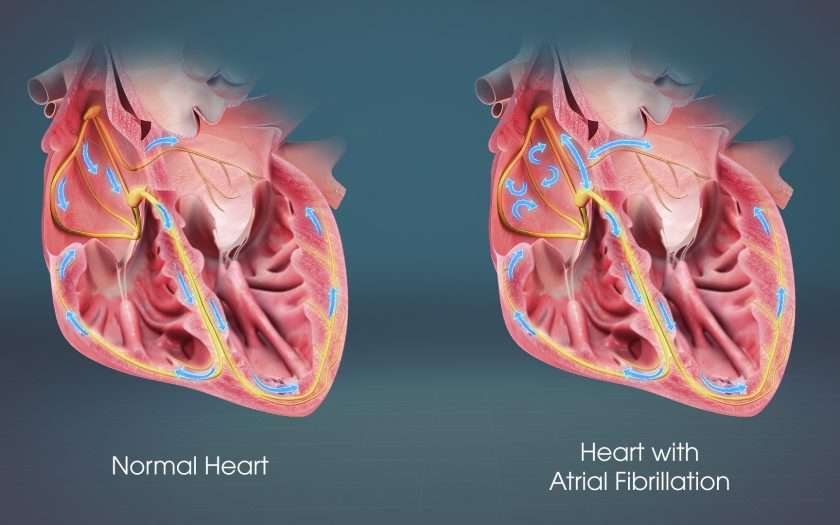Exercise regularly.
During physical activity, adrenaline is released in the body in small quantities. Together with other components, it helps to strengthen the vascular wall and increase the tone of the cardiovascular system. The hormonal component together with the active movement of blood through the vessels, as well as the energetic work of the heart is a good workout for the human body, and our heart becomes more resistant to stressful situations.
Intense exercise can increase irregular heartbeat, but moderate exercise can help reduce the increased risk of heart failure. Create an exercise program that includes regular moderate aerobic exercise, stretching, and strength training (such as yoga).
Reducing stress.
Stress affects not only the condition of the heart muscle, but also the health of blood vessels. Due to the release of free radicals, damage to vascular walls is accelerated. Immune cells also increase vascular spasm, which can lead to hypertension and atrial fibrillation. The effects of stress on the body are different for each person. It depends on personal characteristics, heredity, environment, various circumstances.
Stress is the body’s natural response to discomfort and danger. If the environment does not change and continues to bring discomfort to life, stress becomes chronic. This can cause neurosis, prolonged depression and atrial fibrillation. To understand how to deal with stress quickly, you must first determine the cause of stressful situations. Once you determine the cause, it will be easier for you to deal with it. Throughout life, it is necessary to maintain the normal functioning of the body and check your psycho-emotional background.
Eat less salt.
Excessive salt intake affects our health by disturbing the body’s mineral balance, which can affect our heart rate. Reducing salt intake means reducing consumption of frozen, processed foods and fast food. Carefully study the principles of nutrition in atrial fibrillation and learn to cook on their own with aromatic herbs and spices instead of salt. Also, pay more attention to mineral intake. Electrolyte imbalance may contribute to atrial fibrillation. Therefore, you may need to increase your magnesium and potassium intake to balance your salt intake.
Take medication regularly.
It is often important for patients with atrial fibrillation to take anticoagulants regularly, as this pathology significantly increases the risk of blood clots. Modern, effective and safe medicines include Xarelto and Eliquis.
Eliquis (Apixaban) belongs to the group of direct-acting oral anticoagulants and has an antithrombotic effect. It is used for atrial fibrillation and flutter, strokes, emboli and venous thrombosis, as well as for complications associated with internal orthopedic prosthetic devices, implants and transplants. The effect is achieved due to the fact that apixaban is a powerful direct FXa inhibitor that reversibly and selectively blocks the active center of the enzyme.
Xarelto is very similar to Eliquis in its pharmacological action.

